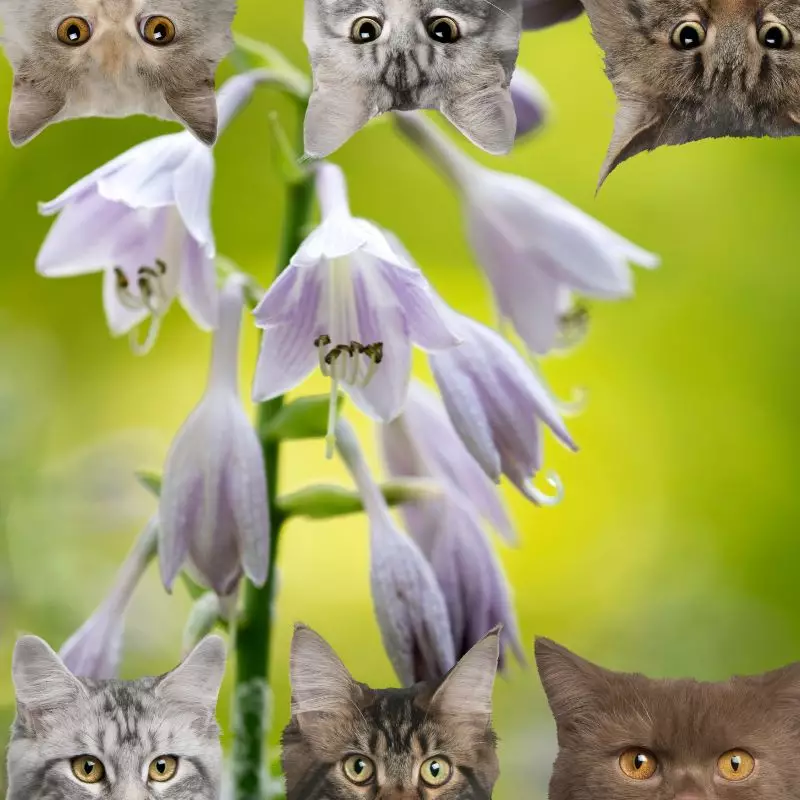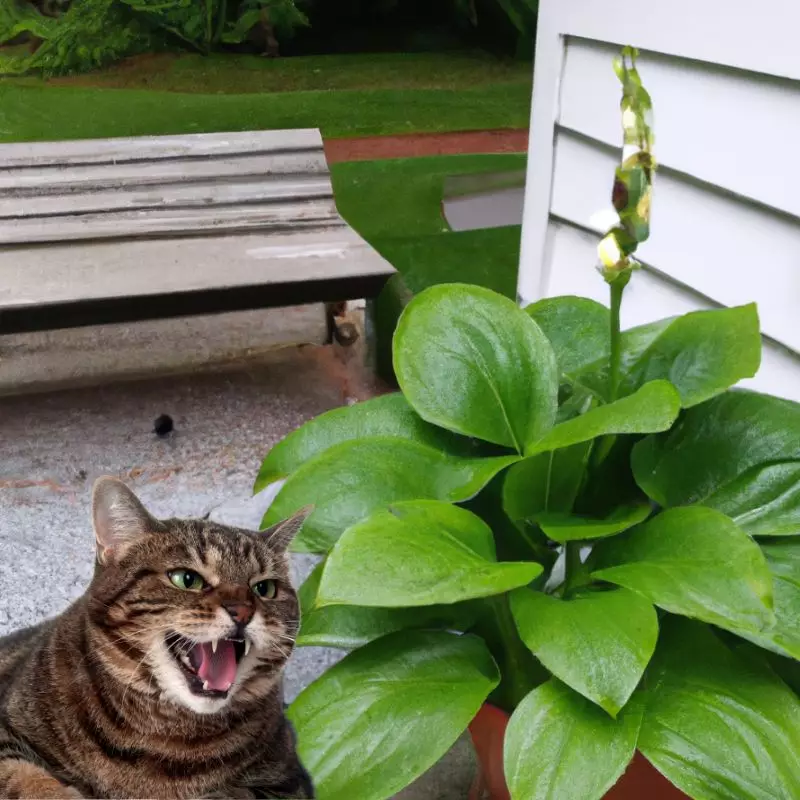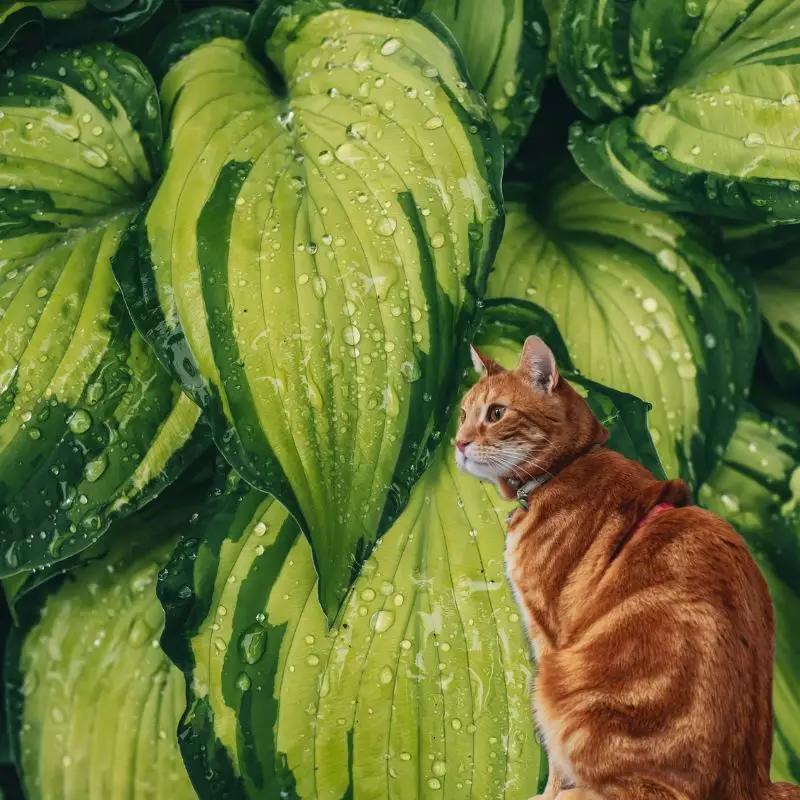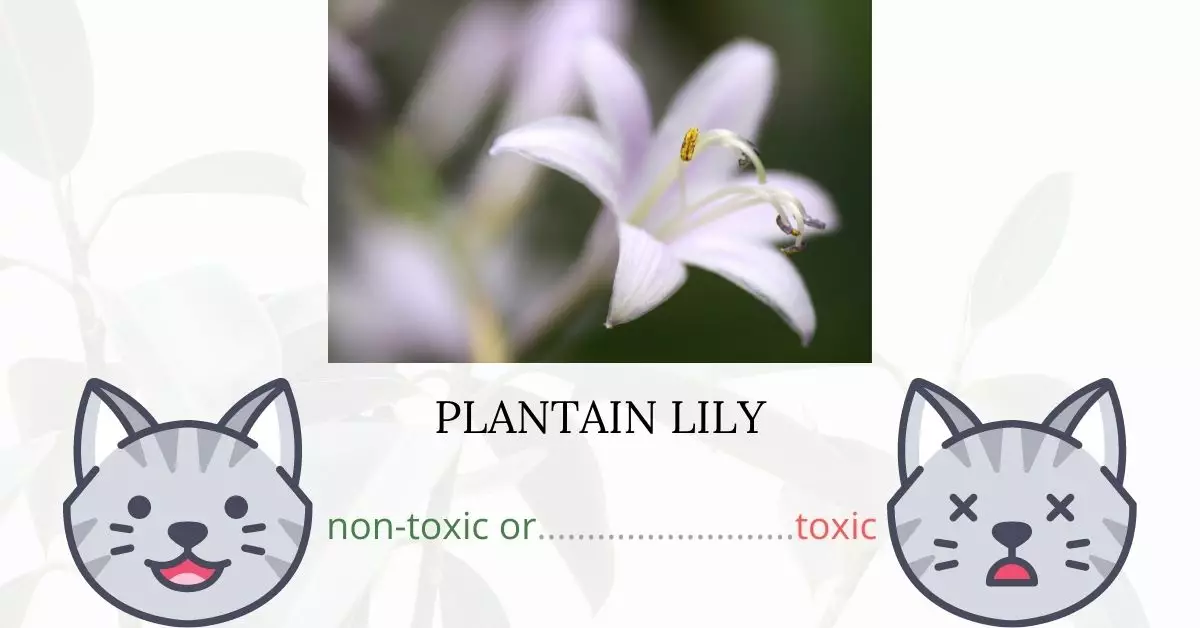Yes, Hostas, also known as Plantain Lilies, are toxic to cats. Hosta is a herbaceous perennial plant that contains saponins, which are harmful to our feline friends. These toxins can be found in various parts of the hosta plant, including the leaves, flowers, and roots. When ingested by cats, saponins can cause disruptions in cell membranes, leading to the breakdown of red blood cells and irritation of the respiratory and digestive systems. This can result in gastrointestinal issues and, in severe cases, can obstruct essential body functions.
This article is the product of a collaborative effort with a team of experienced DVMs (doctors of veterinary medicine). Their expertise ensures that we offer accurate and up-to-date information on the potential risks various plants, like Hostas, pose to cats. Additionally, for comprehensive understanding, we have thoroughly researched high-authority websites such as the ASPCA and PetMD on every plant discussed here.
Clinical Signs of Hosta or Plantain Lily Poisoning in Cats

Hosta, commonly referred to as the Plantain Lily, contains saponins, which can induce a variety of clinical symptoms when ingested, smelled, or when a cat comes in contact with the plant. Understanding the signs and their underlying causes can help cat owners take prompt action if they suspect their pet has consumed or been exposed to this plant:
- Nausea: After ingesting Hosta, cats might show signs of discomfort or distress, such as drooling or restlessness. This happens because saponins irritate the stomach lining, triggering a feeling of nausea.
- Vomiting: Direct irritation of the cat’s stomach by saponins can lead to vomiting. It’s the body’s way of trying to get rid of the harmful substance.
- Diarrhea: The ingestion of Hosta can irritate the intestines, causing them to move more rapidly and expel their contents. This leads to loose, watery stools or diarrhea.
- Depression: Cats might become lethargic or less responsive after ingesting the plant. This could be due to the overall discomfort and malaise caused by the saponin-induced gastrointestinal issues or the body’s general response to toxins.
- Cardiac abnormalities: While less common, the ingestion of large amounts of Hosta can affect the cat’s heart. Saponins can alter cell membranes, and if this affects heart cells, it might lead to arrhythmias or other cardiac issues.
It’s essential for cat owners to be vigilant and seek veterinary care immediately if any of these symptoms are observed after their cat has had contact with Hosta or Plantain Lily.
First Aid and Treatment of Hosta or Plantain Lily Poisoning in Cats

After the veterinarian conducts a complete physical examination and some other tests, he will start treatment which mainly focuses on the treatment of the cat’s symptoms. This will entail cleaning the mouth cavity with water to eliminate any leftover leaf fragments. Hydrogen peroxide can also be used to provoke your cat to vomit. Gastric lavage or stomach pumping may be performed if the cat is unconscious. Activated Charcoal can be administered to the cat to absorb any lingering toxins in the digestive system and bind them together, allowing them to pass safely out of the body. Medications needed to ease your cat’s symptoms may also be prescribed by the vet as needed.
Recovery from Hosta or Plantain Lily Poisoning in Cats

Cases of cats dying from hosta poisoning are very rare. After the symptoms and ailments have passed, the majority of cats will recover completely. Larger doses of hosta plants, on the other hand, may result in more severe effects. Cats that are elderly or have pre-existing health problems may be more vulnerable than healthy cats.
Prevention of Hosta or Plantain Lily Poisoning in Cats
Keeping your cats safe at home is the greatest way to prevent them from eating harmful outside plants. Knowing which plants in your area hold toxins can help you keep your cat from becoming poisoned.
If you love plants but have cats at home, check out these lists:





